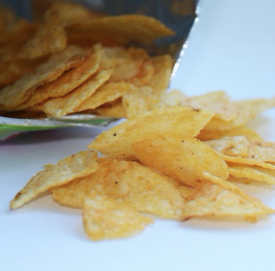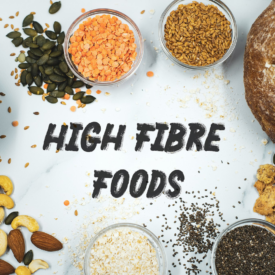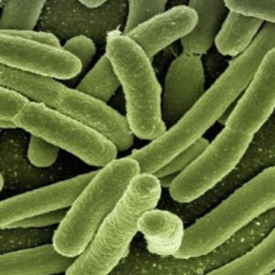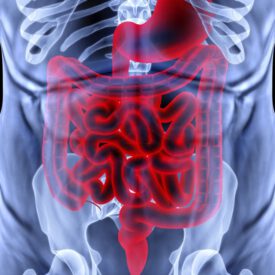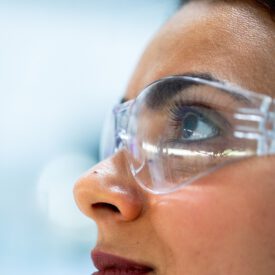Everything you didn’t know about ADHD
ADHD stands for Attention Deficit Hyperactivity Disorder. You probably knew that. And so you might also know that individuals with ADHD experience mainly problems with inattentiveness, hyperactivity and impulsivity. But did you know that emotional problems are also often part of ADHD? Or that individuals with ADHD are on average more creative? No worries if you didn’t, because research on this is still quite new! In the Pint of Science Episode “Everything you didn’t know about ADHD” three young scientists talk about their novel research on ADHD. Mirjam Bloemendaal investigates the ADHD gut microbiome – you might have read about...
Ultra-processed food and ADHD
During the past decades, ultra-processed food has increasingly displaced unprocessed and freshly prepared meals in our diet. This change has taken place in both high and low-income countries, contributing up to 60% of our energy intake [1][2]. Does this major change in diet impact our health, and ADHD in particular? In this blog, I will show you that the current evidence is not yet very consistent, with some studies saying yes and others no. But first, I will explain what ultra-processed food is. What is ultra-processed food?Ultra-processed food is based mostly or entirely on substances derived from food and additives,...
Why scientists can’t just tell you what to eat
The question of ‘what to eat’ can be a tough one. I previously wrote a blog about why – for many of us – food can be quite a sensitive topic. In short, food choices can be seen to reflect what’s important for us, and the illusion of full control over our diet can cause shame when we make unhealthy choices. On top of that, the media is full of mixed messages regarding what to eat (and what not to eat), oftentimes coming from scientists. With so much research going on, you might think: “why can’t you scientists just tell...
Meditation: If there are ‘Super Foods’ are there also ‘Super Activities’?
We already discussed Super Foods and their benefits compared to conventional groceries: If you have not read the blog post yet check it out here. But what about activities? Are there extraordinary healthy “Super”-Activities? What about meditation? When thinking about meditation the first thing that comes to mind is Buddha sitting in a kind of cross-legged position with closed eyes. Just sitting… spending time doing nothing? In the beginning, I thought so too but meditation is much more than that. But first things first: Indeed, meditation is part of numerous religious traditions including Hinduism and Buddhism. But for some time,...
Fiber: a ‘proxy’ for diet quality
Imagine you want to investigate the effects of diet on mental health and behavior. You would need to collect a lot of data about what someone is eating, and about their mental health. However, such rich and complex data is not always available. We therefore sometimes use a ‘proxy’ of the variable (such as diet) that we want to study. A ‘proxy’ is a variable used instead of the variable of interest when that variable of interest cannot be measured directly. For a variable to be a good ‘proxy’, it must have a close correlation with the variable of interest...
It’s teatime: The benefits of drinking tea for cognition and health
Tea is a popular drink all over the world. In 2019 alone, a total of 5,267,240 tons of tea were produced [1]. The top tea consumer in 2020 was Turkey, with sales of 2.7 kg per person [2]. But what makes tea different from other beverages? It’s just hot water, isn’t it? Definitely not! Drinking tea can have a large impact on our health. For example, researchers from China conducted a meta-analysis of observational studies and found that in groups of people with high tea consumption, fewer people suffered from depression compared to groups of people with low tea consumption...
Why gut microbiota are important from birth to old age
Unicellular organisms, such as bacteria, have been on the planet for billions of years. They already existed long before multicellular life emerged, and remain the dominant life form on our planet. Unicellular organisms live in symbiotic or parasitic relationships with plants and animals, and this can have a major influence on how successful they are in life [1]. It has even been postulated that in the absence of bacteria humans would not have developed the current level of cognitive performance [2]. Humans live in a symbiotic relationship with gut microbes: we provide them with source of nutrition, while they help us...
How to take good care of your brain
A few weeks ago we celebrated Brain Awareness Week. During this week in March neuroscientists all over the world, help to raise awareness about how the brain works, how you can take good care of your brain, and how to deal with neurological or mental illnesses. For this occasion, I wrote a blog that was published here. Especially for our New Brain Nutrition readers, I’ve slightly adapted my blog to publish it here. You’re probably quite aware that you have a brain. But are you really? A lot of the amazing work this energy-consuming organ is doing is often taken...
What does a healthy gut represent? Learn the definition of gut health
As a top-hot topic, gut health has been widely explored in an increasing number of scientific papers. Despite the truth that the term gut health is frequently used, is there a gold standard to describe it? Unfortunately, there is no clear and unique definition of gut health, but we can give a rough idea of it.[1][2] In general, gut health can be interpreted as a status without gastrointestinal relevant symptoms, such as constipation, diarrhea and etc. To be more specific, a healthy gut meets at least five requirements [1]: effective digestion and absorption of food effective gut barrier function and...
Experiencing working in the gut-brain axis lab
As a master’s student of Cognitive Neuroscience in Nijmegen, The Netherlands, I was able to experience working in a research lab for a few weeks. During this so-called lab rotation, I learned a lot about the gut microbiome and its effects on behaviour from my supervisor Dr. Mirjam Bloemendaal and dr. Alejandro Arias Vasquez (coordinator of the Eat2beNICE project). In this blog, I will share with you some highlights of my experience. I have always been interested in the effects of food, such as how differences in the amount and type of food you eat influence your body. However, I...

